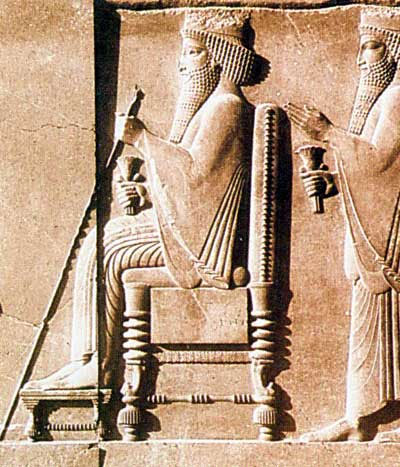Apr
25
2012
 James Jordan is continuing his commentary on Esther in the Biblical Horizons newsletter. As always, he makes some interesting observations on Haman’s “prospectus” speech to the king in Esther 3, in which he describes the Jewish people:
James Jordan is continuing his commentary on Esther in the Biblical Horizons newsletter. As always, he makes some interesting observations on Haman’s “prospectus” speech to the king in Esther 3, in which he describes the Jewish people:
The first thing to notice is that what Haman says is correct. The Jews do have different laws and customs. The word here is dat, which is a general word for laws and customs and mores. This much is quite true, and has been no problem in the Persian empire.
Continue reading
Comments Off | tags: Esther, Haman, James Jordan, Moses, Nebuchadnezzar, Persia | posted in Biblical Theology, The Restoration Era
Sep
7
2010

Of course, God’s new golden-haired boy got things wrong, as all Adams do when given the opportunity of glorious kingdom. The metal man in his dream (the new “empire-Tabernacle”) only had gold at the head, but King Nebuchadnezzar’s obelisk was gold from head to foot. This new king, under whom Israel was now a “Covenant vassal,” would be taught by God that he, too, was subject to a higher authority.
Continue reading
Comments Off | tags: Ahasuerus, Belshazzar, Covenant Theology, Daniel, Esther, Haman, James Jordan, Matthew, Mordecai, Nebuchadnezzar, Persia, Revelation | posted in Biblical Theology, The Last Days, The Restoration Era
May
20
2009
The Purpose of the Restoration Covenant
“The restoration period is the last era of Israel’s history as the people of God and the climactic period of old covenant. The kingdom of God has grown beyond Israel and spread to the nations, who are the God-appointed protectors of His priestly people. Israel’s loss of independence and submission to Gentile powers was not a backward movement in the kingdom program of God. Abraham had been chosen by God so that through him all the nations of the world could be blessed (Gen. 12:3). In the restoration era, this was fulfilled more than at any other time in Israel’s history. Through the dispersion Jews had spread all over the world and they brought with them the knowledge of the true God.
Continue reading
Comments Off | tags: Babylon, Covenant Theology, Daniel, David, Ezekiel's Temple, Nathan, Persia, Restoration, Temple | posted in Biblical Theology, Quotes, The Restoration Era
 James Jordan is continuing his commentary on Esther in the Biblical Horizons newsletter. As always, he makes some interesting observations on Haman’s “prospectus” speech to the king in Esther 3, in which he describes the Jewish people:
James Jordan is continuing his commentary on Esther in the Biblical Horizons newsletter. As always, he makes some interesting observations on Haman’s “prospectus” speech to the king in Esther 3, in which he describes the Jewish people:

























